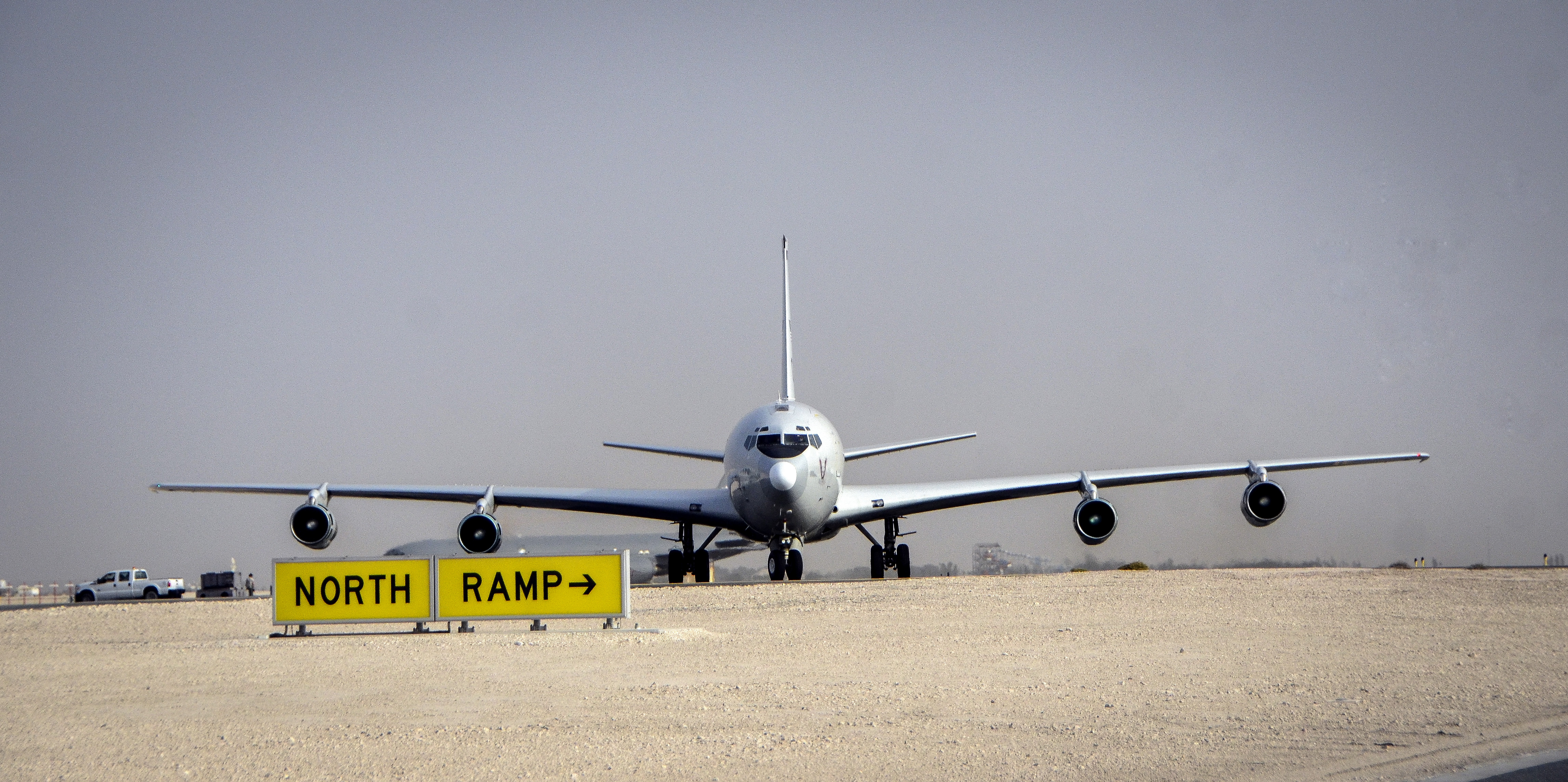
An E-8C JSTARS returns from a mission at Al Udeid AB, Qatar, May 1, 2014, after reaching a milestone of 100,000 flying hours to include more than 88,000 hours in the US Central Command area of responsibility since 2001. Air Force photo by SrA. Jared Trimarchi.
The Air Force hopes to retire three JSTARS in Fiscal 2019 and one more in Fiscal 2021, as it transitions to a new open architecture system that is based on a family of systems rather than a specific aircraft.
The remaining 12 JSTARS are projected to continue flying until the mid-2020s, wrote Lt. Gen. Jerry Harris, USAF deputy chief of staff for plans and requirements, and Susan Thornton, USAF director of information dominance programs, in prepared testimony before the House Armed Services Tactical and Air and Land Forces Subcommittee.
“This gradual reduction of the JSTARS Legacy fleet will cause no reduction in current Battle Management Command and Control and Ground Moving Target indicator capabilities,” they wrote.
Availability rates and sustainment costs continue to rise for the E-8C JSTARS, a modified Boeing 707-300 that was first deployed in 1991 as part of Operation Desert Storm, though some of the airframes date back to the 1960s, wrote Army Lt. Gen. Anthony Ierardi, director of force structure, resources, and assessments, and USAF Lt. Gen. John. Dolan, director for operations on the Joint Staff, in their written testimony to the subcommittee.
Although the Joint Requirements Oversight Council initially validated the Air Force’s recapitalization efforts, and budget documents show the service has already spent $1.18 billion on the JSTARS recap program, “changes in the threat environment … call into question the viability” of that program, they wrote.
The Air Force first “approached JROC with its proposal to re-allocate JSTARS recap funding to accelerate fielding of the Advanced Battle Management System,” first announced during the rollout of the Fiscal 2019 budget request, in December of 2017, wrote Ierardi and Dolan.
“The JROC recognized the validity of the existing JSTARS recap requirements, but also acknowledged the imperative for change driven by the nature of future threats in a contested environment,” they wrote. “It requested the Air Force return to the JROC with options to provide survivable BMC2 [Battle Management Command and Control] and GMTI capability in both permissive and non-permissive environments and propose any requirement adjustments that might be needed to support these options.”
The Air Force “is still developing its response to the JROC request,” however, it eliminated funding for the JSTARS recap program in its Fiscal 2019 budget request, and has inserted funding meant to “accelerate building a robust, resilient ABMS that can operate across the full range of operating environments and mitigate the interim permissive environment risk that would result from halting the JSTARS recap effort,” wrote Ierardi and Dolan.